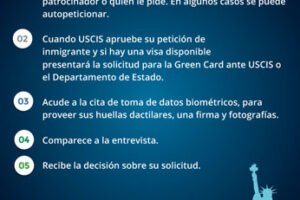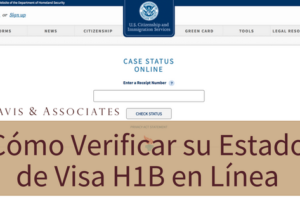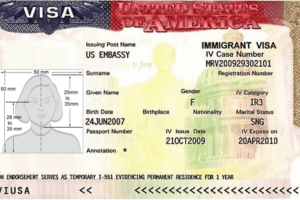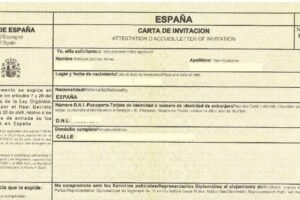Is it possible to exchange the American residency for a tourist visa?

The answer to the question of whether it is possible to change the U.S. residency to a tourist visa is No. The answer is that it is not.
You cannot simply “exchange” your permanent residency (commonly known as a “Green Card”) for a tourist visa. Both statuses have different purposes and benefits.
If a permanent resident decides to abandon his or her U.S. resident status and return to his or her home country or go to another country, he or she must notify the U.S. Citizenship and Immigration Services (USCIS) of his or her intention to abandon his or her residency.
If in the future that person wishes to visit the United States as a tourist, he or she must apply for a tourist visa (B-2) through the U.S. embassy or consulate in his or her country, just like any other applicant.
It is important to note that if a permanent resident abandons his or her status and then decides to return to the United States, he or she may face difficulties or questions about his or her prior intentions when applying for a tourist visa.
Therefore, it is essential to carefully consider any decision to abandon permanent residency.
What happens if you give up your U.S. residency?
If you decide to renounce your permanent residence in the United States, there are several implications and steps to consider:
- Formal Process: Renunciation of permanent residence is a formal act. You must file Form I-407, “Record of Abandonment of Lawful Permanent Resident Status,” with the U.S. Citizenship and Immigration Services (USCIS) or at a port of entry.
- Returning to the U.S.: If you renounce your permanent resident status and then wish to return to the U.S., either as a visitor or as a resident again, it may be more complicated. If you wish to return as a tourist, you will need to apply for a tourist visa and your previous history as a permanent resident may be evaluated. If you wish to regain residency, you would have to start the process from scratch, which can be lengthy and complex.
- Tax Obligations: By renouncing your residency, you may have tax implications. It is essential that you contact an accountant or tax specialist to ensure that you have met all your tax obligations before resigning.
- Property and Assets: If you have property or assets in the United States, it is critical to consider how the waiver will affect those assets. You may wish to sell properties or transfer assets before resigning.
- Emotional and Personal Repercussions: Leaving permanent residency can also have an emotional impact, especially if you have lived in the U.S. for a long time and have family, friends or professional ties there.
In short, renouncing permanent residency in the United States is a serious decision with many implications. If you are considering this option, it is advisable to seek legal and financial advice before making a final decision.
How to make a change of status in the United States?
The process of changing status in the United States, known as “Adjustment of Status,” is a procedure that allows certain individuals who are already in the country to change their immigration status without having to leave the United States. Here is a summary based on the information in the link provided:
- Eligibility: Not all persons are eligible to apply for adjustment of status. You must be in the United States, have entered legally and meet certain requirements, which vary depending on your current situation and the type of visa or status you wish to obtain.
- Form I-485: To apply for adjustment of status, you must complete and file Form I-485, “Application to Register Permanent Residence or Adjust Status,” with the U.S. Citizenship and Immigration Services (USCIS). This form is the centerpiece of the adjustment of status process.
- Additional Documentation: Depending on your situation and the category under which you are applying for adjustment, you may be required to submit additional documentation, such as proof of your relationship to a U.S. citizen (if you are applying through marriage, for example) or proof of your employment in the United States.
- Interview and Medical Examination: Generally, you will be required to attend an interview at a local USCIS office. Prior to this interview, you will also be required to undergo a medical examination by a USCIS-designated physician.
- Decision: Once USCIS has reviewed your application and documents and has conducted the interview, it will make a decision on your case. If your application is approved, you will be granted permanent residency and receive your green card. If you refuse, you will be informed of the reason and, depending on the situation, you could face deportation proceedings.
Formalities related to U.S. visa
Obtaining a Green Card by marriage is a process that involves submitting a series of essential documents to prove the legitimacy of the marriage and comply with U.S. immigration regulations.…
If you are in the process of applying for your B1/B2 visa (for tourism or business) to the United States, the first step is to make sure you have correctly…
Processing a U.S. visa can be a complicated and overwhelming process for many. It is a task that involves documents, procedures and interviews. That is why some people consider hiring…
If you suspect that your U.S. visa may be cancelled or you want to confirm its status, it is essential that you take the following actions to obtain clear information:…
If you are Honduran and wish to travel to the United States, it is essential to obtain an American Visa, the only document that allows you to enter the country.…











